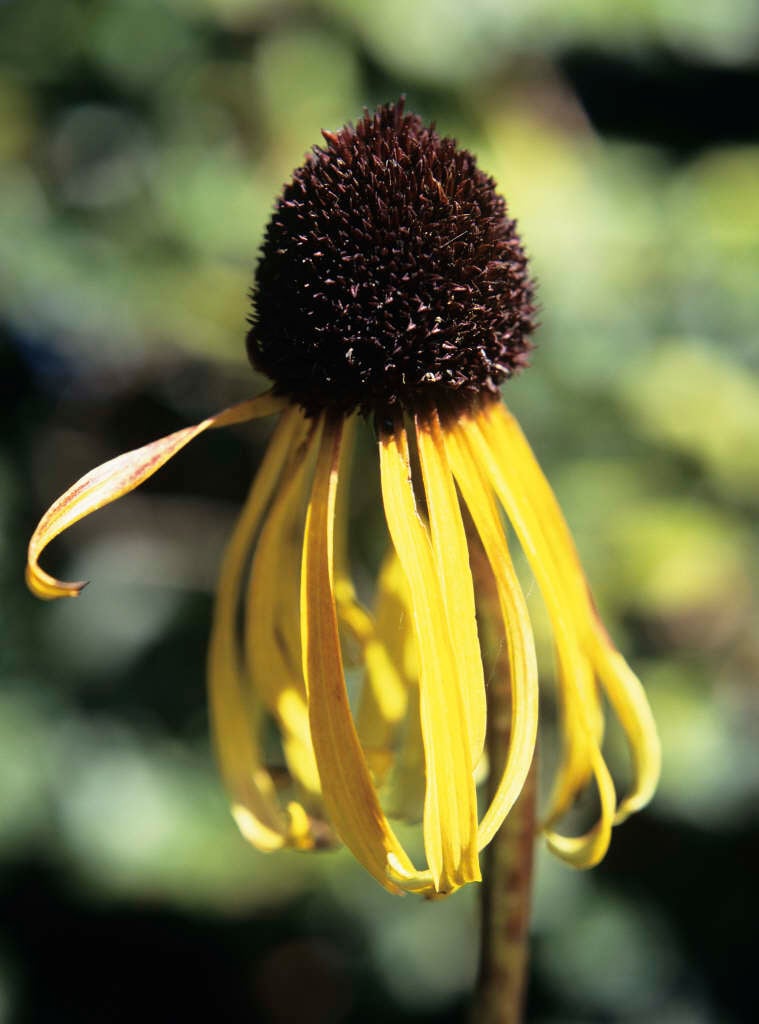Echinacea paradoxa
Bush's purple coneflower
Spreading perennial coneflower about 1m tall, with narrow leaves to 20cm long, and daisy-like flowerheads with narrow, drooping golden-yellow rays to 7cm long, surrounding a conical central brown cone, flowering from midsummer to early autumn; native to prairies of south-central USA

Buy this plant
Size
Ultimate height
0.5–1 metresTime to ultimate height
2–5 yearsUltimate spread
0.5–1 metresGrowing conditions
Moisture
Well–drainedpH
Acid, Alkaline, NeutralColour & scent
| Stem | Flower | Foliage | Fruit | |
| Spring | Green | |||
|---|---|---|---|---|
| Summer | Yellow | Green | ||
| Autumn | Yellow | Green | ||
| Winter |
Position
- Full sun
Aspect
South–facing or West–facing
Exposure
Exposed or Sheltered Hardiness
H5Botanical details
- Family
- Asteraceae
- Native to GB / Ireland
- No
- Foliage
- Deciduous
- Habit
- Bushy, Clump forming
- Genus
Echinacea are erect, clump-forming rhizomatous perennials with simple or pinnately lobed leaves and solitary, long-stalked daisies with prominent conical central disks and often drooping ray florets; attractive to butterflies
- Name status
Correct
- Plant range
- S North America
How to grow
Cultivation
Grow in humus-rich well-drained soil in full sun; poor drainage in winter will lead to losses. A dry mulch in winter is advisable in very cold areas. Leave plants to develop into substantial clumps as they resent disturbance
Propagation
Propagate by seed in spring, but may need a cold spell before it will germinate. Root cuttings can be taken in late autumn or early winter. Propagate by division in spring but this can be unreliable as they resent disturbance
Suggested planting locations and garden types
- Gravel garden
- Wildlife gardens
- Cottage and informal garden
- Prairie planting
- City and courtyard gardens
- Patio and container plants
- Flower borders and beds
- Cut flowers
Pruning
Cut back flowered stems to encourage a long flowering display
Pests
Generally pest-free
Diseases
Generally disease-free
Get involved
The Royal Horticultural Society is the UK’s leading gardening charity. We aim to enrich everyone’s life through plants, and make the UK a greener and more beautiful place.